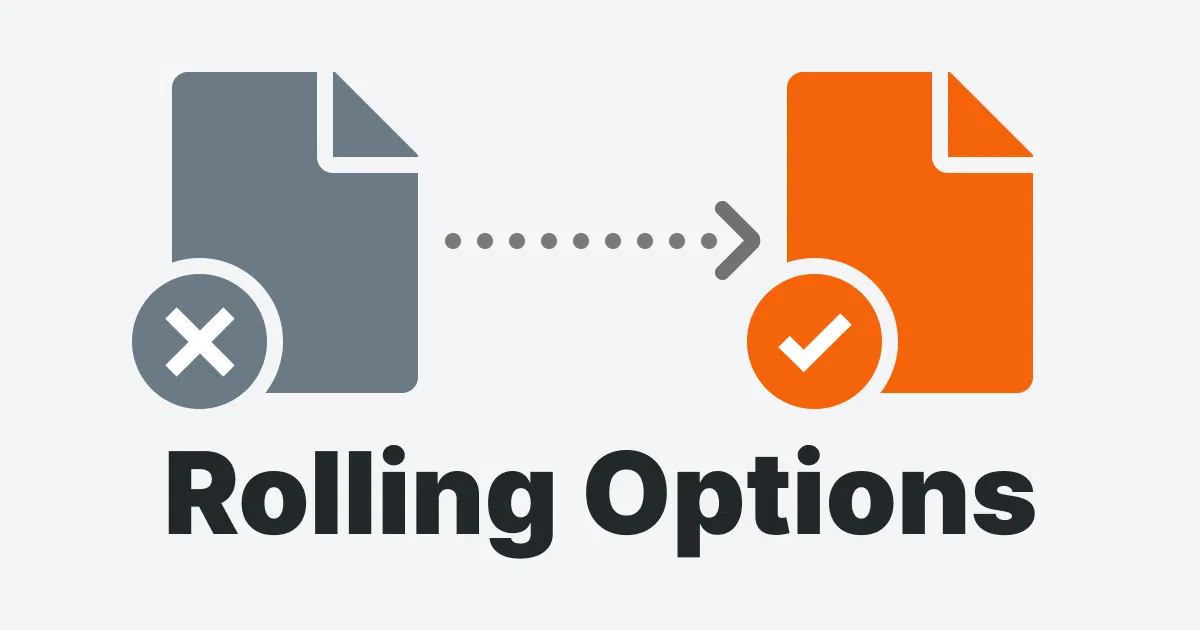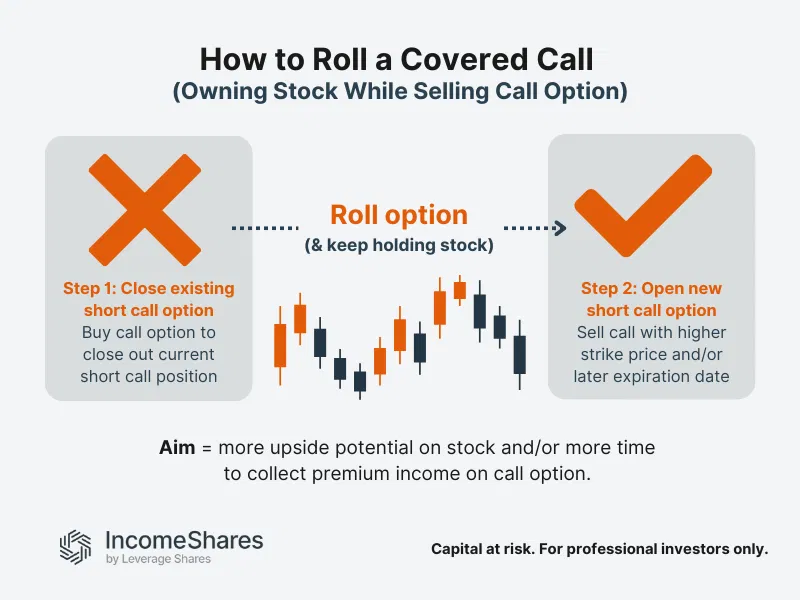.webp)
Author
Jonathan Hobbs, CFA
Date
15 Jan 2025
Category
Market Insights
Rolling Options Explained: What It Is and How It Works
Your capital is at risk if you invest. You could lose all your investment. Please see the full risk warning here.

Options trading is dynamic – market conditions change, and traders often need to adjust their positions. One way to do this is by rolling options. In this guide, we’ll explain rolling options, and why it can be a useful tool for managing risk and seeking income.
What is rolling an option?
Rolling an option means closing an existing option position and opening a new one with a different strike price, expiration date, or both. This strategy allows traders to adjust their positions without exiting the market completely. Rolling options is common in both speculative and income-generating strategies.
Traders can roll call or put options. The process of rolling options typically involves two steps:
- Close the existing option: buy back the option you initially sold or sell the option you initially bought.
- Open a new option: open a new position with a different expiration date, strike price, or both.

Why do traders roll options?
Rolling options can give traders the flexibility to adapt to market changes. Here are some reasons why traders might use this strategy:
1. To extend the trade (rolling forward):
If an option is about to expire but the trader believes the strategy still has potential, they might roll forward to a later expiration date. This keeps the trade active for longer.
2. To adjust the strike price (rolling up or down):
If the market moves against a position, traders might roll up (increase the strike price) or roll down (decrease the strike price) to better align with market conditions.
3. To manage risk:
Rolling options can help manage risk by adjusting exposure. For example, if a stock rises quickly, a trader might roll a covered call to a higher strike price. This could allow for more upside potential while still generating potential income.
4. To bank profits or reduce losses:
If a position is in profit, rolling can help traders lock in some gains while staying in the trade. And if the position is losing, rolling might reduce potential losses by adjusting the strike price or extending the trade.
Rolling options example: Covered call with Nvidia stock
Let’s consider a trader who holds 100 shares of NVIDIA Corporation (NVDA), currently trading at $135.
They have sold a covered call with a $140 strike price that expires on Friday. With NVDA’s price rising, they decide to adjust their position.
Step 1: Close the existing call option:
The trader buys back the original call option with the $140 strike price.
Step 2: Open a new option position:
They sell a new call option with a $150 strike price that expires next month.
Rolling up to a higher strike price allows more room for the stock to gain value before the option is exercised. Extending the expiration date also provides more time to potentially collect premium income.
Risks of rolling options
While rolling options offers flexibility, it also comes with a few potential risks:
- Extra costs: Buying back options can be costly – especially if the position has moved against you.
- No guaranteed protection: Rolling doesn’t eliminate risk. It only adjusts it.
- Market timing: Poor timing can turn a small loss into a big one.
Key takeaways
- Rolling options involves closing one option and opening another with a different strike price, expiration date, or both.
- Traders might roll options to extend trades, adjust strike prices, manage risk, or lock in profits.
- Covered calls and put-writing strategies might use rolling to adapt to market movements.
- Rolling options can potentially support income generation, but it carries risks and requires active management.
Your capital is at risk if you invest. You could lose all your investment. Please see the full risk warning here.
Related Products:
Strategie
Barbesicherte Puts + Eigenkapital
Ausschüttungsrendite
36.31%
Strategie
Barbesicherte Puts + Eigenkapital
Ausschüttungsrendite
43.42%
Strategie
Barbesicherte Puts + Eigenkapital
Ausschüttungsrendite
71.03%
Strategie
Barbesicherte Puts + Eigenkapital
Ausschüttungsrendite
47.27%
Strategie
Covered Call
Ausschüttungsrendite
13.51%
